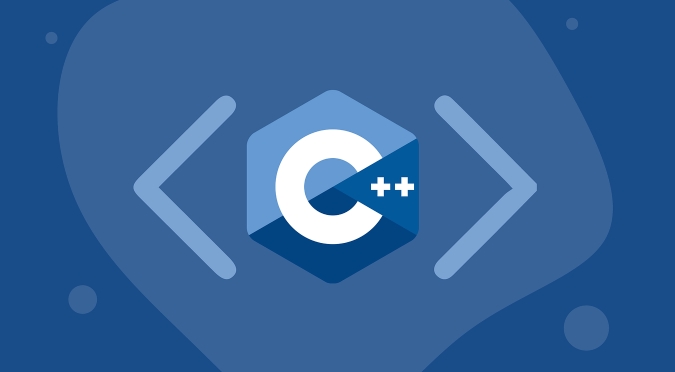There are three effective ways to generate UUIDs or GUIDs in C: 1. Use the Boost library, which provides multi-version support and is simple to interface; 2. Manually generate Version 4 UUIDs suitable for simple needs; 3. Use platform-specific APIs (such as Windows' CoCreateGuid), without third-party dependencies. Boost is suitable for most modern projects, manual implementation is suitable for lightweight scenarios, and platform API is suitable for enterprise environments.

If you need to generate a UUID or GUID in C , there's no built-in standard library support for it prior to C 20, and even then, it's limited. So, most developers either use external libraries or implement their own solutions based on known UUID versions.

Here's how you can do it effectively depending on your needs and environment.

Use a Library Like boost::uuids
Boost is one of the most common and reliable ways to generate UUIDs in C . It supports multiple UUID versions and provides clean APIs.
- Install Boost (if not already installed) via package managers like vcpkg or directly from source.
- Include
<boost></boost>and<boost></boost>. - Use the random generator like this:
#include <boost/uuid/uuid.hpp>
#include <boost/uuid/uuid_generators.hpp>
#include <boost/uuid/uuid_io.hpp>
#include <iostream>
int main() {
boost::uuids::uuid uuid = boost::uuids::random_generator()();
std::cout << uuid << std::endl;
return 0;
}This gives you a Version 4 UUID by default. If you need other versions, Boost has support for things like name-based (Version 3 or 5) and time-based (Version 1) UUIDs as well.

Generate Manually for Simple Needs
If you don't want to pull in a big library like Boost, you can generate a basic Version 4 UUID manually.
A Version 4 UUID looks like this: xxxxxxxx-xxxx-4xxx-yxxx-xxxxxxxxxxxx
Where:
- The third group starts with "4" (indicating version 4).
- The fourth group starts with "8", "9", "a", or "b".
You can create a random string following that pattern using something like:
#include <random>
#include <string>
#include <iostream>
std::string generate_uuid_v4() {
static std::random_device rd;
static std::mt19937 gen(rd());
static std::uniform_int_distribution<> dis(0, 15);
static std::uniform_int_distribution<> dis2(8, 11);
std::string uuid = "xxxxxxx-xxxx-4xxx-yxxxx-xxxxxxxxxxxxxxxxx";
for (int i = 0; i < uuid.size(); i) {
if (uuid[i] == 'x') {
int r = dis(gen);
uuid[i] = "0123456789abcdef"[r];
} else if (uuid[i] == 'y') {
int r = dis2(gen);
uuid[i] = "89ab"[r - 8];
}
}
return uuid;
}
int main() {
std::cout << generate_uuid_v4() << std::endl;
return 0;
}This isn't cryptographically secure but works fine for simple applications.
Use Platform-Specific APIs (Windows Example)
On Windows, you can use the native API CoCreateGuid , which is part of the COM library.
Steps:
- Include
<objbase.h> - Link against
ole32.lib - Call
CoCreateGuid()to fill aGUIDstruct
Example:
#include <objbase.h>
#include <iostream>
std::string guid_to_string(const GUID &guid) {
char guidStr[37];
sprintf_s(guidStr,
"X- X- X- X- X X- XXXXXX",
guid.Data1, guid.Data2, guid.Data3,
guid.Data4[0], guid.Data4[1],
guid.Data4[2], guid.Data4[3],
guid.Data4[4], guid.Data4[5],
guid.Data4[6], guid.Data4[7]);
return std::string(guidStr);
}
int main() {
CoInitialize(nullptr);
GUID guid;
CoCreateGuid(&guid);
std::cout << guid_to_string(guid) << std::endl;
CoUninitialize();
return 0;
}This method avoids third-party dependencies and uses OS-level tools, which can be helpful in enterprise environments.
Summary of Options
- Boost : Full-featured, easy to use, supports multiple UUID versions.
- Manual generation : Lightweight, good for basic needs, not secure.
- Platform-specific APIs : No external dependencies, but not portable.
Depending on your project setup and requirements, pick the method that fits best. For most modern projects, Boost is the easiest and safest bet unless you have strict dependency limits.
Basically that's it.
The above is the detailed content of How to generate a UUID/GUID in C ?. For more information, please follow other related articles on the PHP Chinese website!

Hot AI Tools

Undress AI Tool
Undress images for free

Undresser.AI Undress
AI-powered app for creating realistic nude photos

AI Clothes Remover
Online AI tool for removing clothes from photos.

Clothoff.io
AI clothes remover

Video Face Swap
Swap faces in any video effortlessly with our completely free AI face swap tool!

Hot Article

Hot Tools

Notepad++7.3.1
Easy-to-use and free code editor

SublimeText3 Chinese version
Chinese version, very easy to use

Zend Studio 13.0.1
Powerful PHP integrated development environment

Dreamweaver CS6
Visual web development tools

SublimeText3 Mac version
God-level code editing software (SublimeText3)

Hot Topics
 C tutorial for people who know Python
Jul 01, 2025 am 01:11 AM
C tutorial for people who know Python
Jul 01, 2025 am 01:11 AM
People who study Python transfer to C The most direct confusion is: Why can't you write like Python? Because C, although the syntax is more complex, provides underlying control capabilities and performance advantages. 1. In terms of syntax structure, C uses curly braces {} instead of indentation to organize code blocks, and variable types must be explicitly declared; 2. In terms of type system and memory management, C does not have an automatic garbage collection mechanism, and needs to manually manage memory and pay attention to releasing resources. RAII technology can assist resource management; 3. In functions and class definitions, C needs to explicitly access modifiers, constructors and destructors, and supports advanced functions such as operator overloading; 4. In terms of standard libraries, STL provides powerful containers and algorithms, but needs to adapt to generic programming ideas; 5
 C Destructors: Practical Code Examples
Jun 22, 2025 am 12:16 AM
C Destructors: Practical Code Examples
Jun 22, 2025 am 12:16 AM
C destructorsarespecialmemberfunctionsthatautomaticallyreleaseresourceswhenanobjectgoesoutofscopeorisdeleted.1)Theyarecrucialformanagingmemory,filehandles,andnetworkconnections.2)Beginnersoftenneglectdefiningdestructorsfordynamicmemory,leadingtomemo
 What is the Standard Template Library (STL) in C ?
Jul 01, 2025 am 01:17 AM
What is the Standard Template Library (STL) in C ?
Jul 01, 2025 am 01:17 AM
C STL is a set of general template classes and functions, including core components such as containers, algorithms, and iterators. Containers such as vector, list, map, and set are used to store data. Vector supports random access, which is suitable for frequent reading; list insertion and deletion are efficient but accessed slowly; map and set are based on red and black trees, and automatic sorting is suitable for fast searches. Algorithms such as sort, find, copy, transform, and accumulate are commonly used to encapsulate them, and they act on the iterator range of the container. The iterator acts as a bridge connecting containers to algorithms, supporting traversal and accessing elements. Other components include function objects, adapters, allocators, which are used to customize logic, change behavior, and memory management. STL simplifies C
 How to use cin and cout for input/output in C ?
Jul 02, 2025 am 01:10 AM
How to use cin and cout for input/output in C ?
Jul 02, 2025 am 01:10 AM
In C, cin and cout are used for console input and output. 1. Use cout to read the input, pay attention to type matching problems, and stop encountering spaces; 3. Use getline(cin, str) when reading strings containing spaces; 4. When using cin and getline, you need to clean the remaining characters in the buffer; 5. When entering incorrectly, you need to call cin.clear() and cin.ignore() to deal with exception status. Master these key points and write stable console programs.
 What is inheritance in C ?
Jul 01, 2025 am 01:15 AM
What is inheritance in C ?
Jul 01, 2025 am 01:15 AM
InheritanceinC allowsaderivedclasstoinheritpropertiesandbehaviorsfromabaseclasstopromotecodereuseandreduceduplication.Forexample,classeslikeEnemyandPlayercaninheritsharedfunctionalitysuchashealthandmovementfromabaseCharacterclass.C supportssingle,m
 What is function hiding in C ?
Jul 05, 2025 am 01:44 AM
What is function hiding in C ?
Jul 05, 2025 am 01:44 AM
FunctionhidinginC occurswhenaderivedclassdefinesafunctionwiththesamenameasabaseclassfunction,makingthebaseversioninaccessiblethroughthederivedclass.Thishappenswhenthebasefunctionisn’tvirtualorsignaturesdon’tmatchforoverriding,andnousingdeclarationis
 What is the volatile keyword in C ?
Jul 04, 2025 am 01:09 AM
What is the volatile keyword in C ?
Jul 04, 2025 am 01:09 AM
volatile tells the compiler that the value of the variable may change at any time, preventing the compiler from optimizing access. 1. Used for hardware registers, signal handlers, or shared variables between threads (but modern C recommends std::atomic). 2. Each access is directly read and write memory instead of cached to registers. 3. It does not provide atomicity or thread safety, and only ensures that the compiler does not optimize read and write. 4. Constantly, the two are sometimes used in combination to represent read-only but externally modifyable variables. 5. It cannot replace mutexes or atomic operations, and excessive use will affect performance.
 How to get a stack trace in C ?
Jul 07, 2025 am 01:41 AM
How to get a stack trace in C ?
Jul 07, 2025 am 01:41 AM
There are mainly the following methods to obtain stack traces in C: 1. Use backtrace and backtrace_symbols functions on Linux platform. By including obtaining the call stack and printing symbol information, the -rdynamic parameter needs to be added when compiling; 2. Use CaptureStackBackTrace function on Windows platform, and you need to link DbgHelp.lib and rely on PDB file to parse the function name; 3. Use third-party libraries such as GoogleBreakpad or Boost.Stacktrace to cross-platform and simplify stack capture operations; 4. In exception handling, combine the above methods to automatically output stack information in catch blocks






